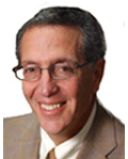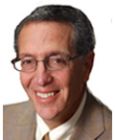
Chronic Pain
Looking to the Past for Answers to Modern Medical Problems
The key to some cases of chronic pain lies in wisdom from an earlier day.
Posted March 24, 2014
Ovid: When the mind is ill at ease, the body is affected. (Vitiant artus aegrae contagia mentis.)
Sir William Osler: If you listen carefully to the patient, they will tell you the diagnosis.
As a medical student in the 1970’s, which was the beginning of an age of rapidly emerging scientific developments, I trusted that the advances in modern medicine would eventually solve the problems of cancer, infections, and heart disease. We have made great progress in some areas, evidenced by improved treatment for breast cancer and HIV/AIDS, which are now typically chronic illnesses rather than death sentences. These changes occurred because of scientific discoveries and have led the public to believe that new discoveries would be forthcoming for many other diseases as well. Each week, the media informs us of research studies that offer hope for those of us unfortunate to suffer from disorders beyond our control. It has been well documented that the U.S. spends more on medical care per capita than any other country. We expect that more medical care will lead to better health and well-being.

Yet, there are disorders for which modern medicine has failed. And these conditions are among the most commonly encountered in medical practice. These disorders typically affect younger people, rather than the elderly (although they are also common among seniors) and consist of five primary areas: chronic pain, insomnia, fatigue, anxiety and depression. In fact, the majority of visits to doctor’s office are for these disorders. There have been no major scientific breakthroughs in these areas and these conditions are all increasing in our society. It is my belief that traditional medical treatment for these disorders can actually worsen the symptoms in the long run. I don’t make that assertion lightly because it is painful to recognize our failings as a profession, yet this is what I have learned by careful investigation of the scientific literature and careful observation of patients with these problems.
For the past 10 years, I’ve focused my clinical work and research on patients with medical symptoms that have been resistant to recovery despite many traditional (and alternative) treatments, yet there is no evidence of a structural, pathological process in the body. Doctors call these “functional” or “non-organic” disorders and words patients use to describe them range from “frustrating” to “devastating.”
As I mentioned, these disorders are quite common. For example, most people who have chronic headaches do not have a medical cause for them, such as a brain tumor or hemorrhage, sinus infection, rheumatologic disorder, or other disease. While the medical profession is adept at categorizing headaches (e.g., migraine, chronic daily headaches, tension headache, cluster headaches), we are not very good at determining the underlying causes or curing the problem. I spoke to an excellent headache specialist who bluntly stated: “I don’t cure any of the chronic headache patients.” And millions of people suffer with chronic headaches. And, yet, when you listen closely to the histories of headache sufferers, you learn that headaches frequently come and go, often appearing and disappearing for weeks, months or years, only to recur at a later date. It’s as if there is a switch in the head that is turning on and off for some reason.
And this reason is not understood…unless one listens very carefully to a patient’s story. Not just their medical history, but their life history as well.
I had a patient, whom I will call Vickie, who had severe, daily headaches for 17 years. The headaches began within seconds of getting a new set of glasses. Despite many attempts to alter the glasses, the headaches persisted. Over the years, this unfortunate woman had seen dozens of doctors, including several headache specialists. She had been tried on over 20 different medications and she had even had surgery to try to alleviate her pain. However nothing worked.
Her life story was shocking in its power and simplicity. As a child, her mother was generally aloof and not supportive; her father was described as “bipolar.” Some days, he was kind and jovial, while on other days, he was unpredictably angry and emotionally abusive. He would yell at his daughter things like: “You idiot, you jerk, why can’t you do anything right?” Despite this, Vickie grew up, married, and had children without suffering from any serious physical or mental disorders. At the time of the onset of the headaches, her family was fine, but her new boss turned out to be a “yeller” and she tried to work ever harder to please him. Could this be the clue to her headaches? Could the experience of being yelled at by a boss have triggered long-held feelings about being yelled at as a child? It’s hard to imagine that this relatively simple explanation could explain headaches for so many years. But changing how she understood the pain and addressing the underlying emotional issues led to disappearance of the headaches.
Careful listening uncovered an answer to what turned on the headache switch in Vickie’s brain (thank you, Dr. Osler). Understanding the wisdom of Ovid (“when the mind is ill at ease, the body is affected”) was the key to Vickie’s recovery.
There are millions of people like Vickie who suffer from so-called functional disorders. Every one of them has a story. I have learned that the vast majority of these stories are very similar to Vickie’s story. And many of them will recover completely.
In the coming months, I will share these stories, along with emerging research that links medically unexplained ailments, including many chronic painful conditions, to “dis-ease” of the mind. It may well be that some very old ideas, rather than new scientific breakthroughs, are needed to solve certain modern problems.
To your health,
Howard Schubiner, MD

